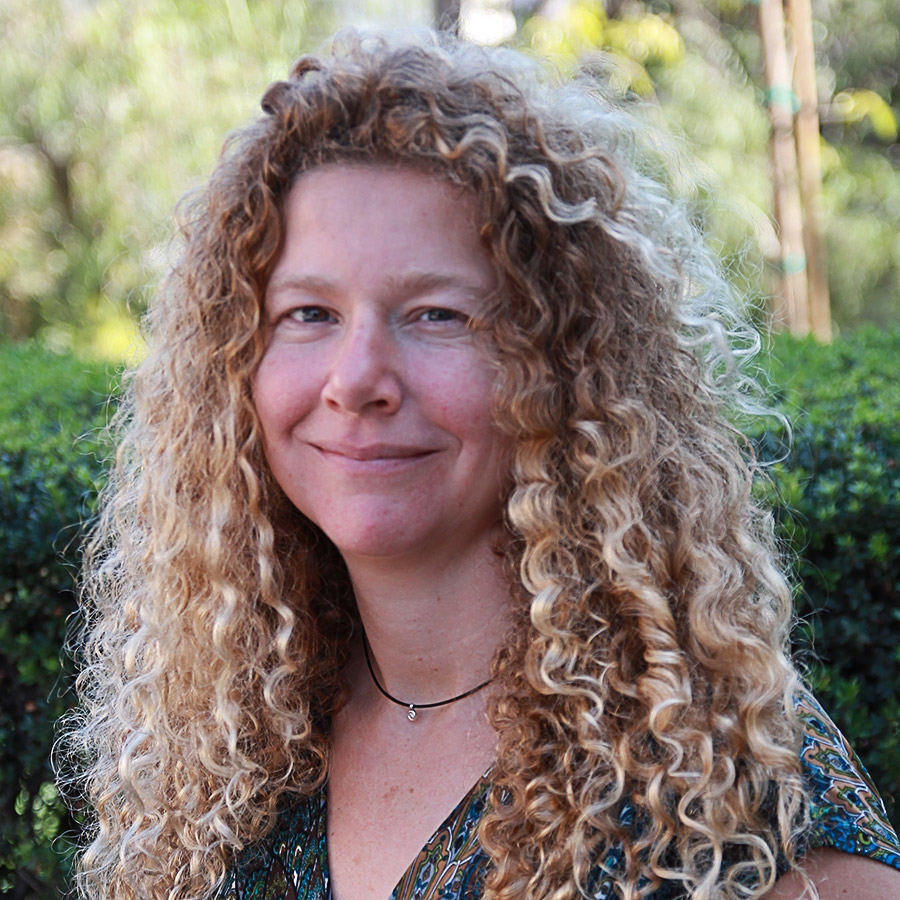Zeynep K. Korkman
/in Core Faculty /by webteam
Zeynep K. Korkman
Associate Professor
Affiliation: Gender Studies
Email: korkman@ucla.edu
Office: 7266 Bunche Hall
Research Interest
Transnational Feminisms, Affect, Labor, Religion and Secularism, Turkey and the broader Middle East
Biography
Zeynep K. Korkman is an associate professor of gender studies at UCLA. Her research explores the gendered relationships between affect, labor, religion, and transnational feminist politics, with a focus on Turkey and the broader Middle East. Korkman’s research agenda revolves around the affective labors and political genres through which women and lesbian, gay, bisexual, transgender, intersex, and queer (LGBTIQ) individuals navigate globally inflected social formations such as heteropatriarchy, neoliberal capitalism, religiously accented authoritarianism, secularism, and anti-Muslim racism. Her work has been published in Gender and Society, Feminist Formations, Meridians: Feminism, Race, Transnationalism, Journal of Middle East Women Studies, European Journal of Cultural Studies, and Journal of Ottoman and Turkish Studies. Korkman’s research agenda unfolds along two interconnected tracks. The first focuses on the gendered relationships between affect, labor, and religion. Korkman’s monograph, Gendered Fortunes: Divination, Precarity, and Affect in Postsecular Turkey (2023, Duke University Press), explores the proliferating fortunetelling economy of millennial Turkey as an affective window on the gendered contradictions of neoliberalism, secularism, and religiously accented authoritarianism. Drawing upon an extensive ethnographic fieldwork supported by cultural analysis and archival research, the book details how gender and sexual minorities acclimate to and survive a global tide of economic neoliberalism, political authoritarianism, and religiously accented conservatism through gendered practices of divination. Taking as its object of inquiry a seemingly minor practice that is often degraded and looked down upon as a feminine foible, Gendered Fortunes asserts that feminized, marginalized, and affective ways of relating to one’s self, others, and the world provide an important window on macrolevel social, economic, and political processes from the perspective of the minoritized. In a context wherein women and LGBTIQ people of the Muslim Middle East have been the favorite targets of anti-Muslim discourses cloaked in a veneer of (colonial, pseudo-feminist) concern to “save” them, this book shines a light on the complexities and contradictions at the heart of these major political contestations. The second track of Korkman’s research details the affective contents and discontents of transnational feminist politics. Korkman’s second book project, Feelings that Move: Affective Politics of Transnational Feminist Solidarity, explores the interplay among gender, affect, and politics through an analysis of the promises and discontents of feminists solidarity with Muslims, “terrorists,” and refugees. The book asks how transnational feminist activists laboriously mobilize affective flows of concern, affinity, and care alongside material flows of money, resources, and advocacy under the shadow of war, disaster, displacement, and structural and gendered violence. The book addresses this question three case studies: transnational feminist solidarity against anti-Muslim racism, transnational solidarity with persecuted academics from Turkey, transnational feminist solidarity between feminists and refugees in Turkey. Taken together, these three parts analyze the affective processes that make and break transnational feminist solidarity in order to advance our understanding of the relationships among gender, affect, and politics. In doing so, Feelings that Move highlights the affective strategies and struggles that illuminate a horizon beyond our contemporary global moment colored by racist, misogynist, and xenophobic public cultures and the warmongering, masculinist, and authoritarian regimes that are emboldened by them.
Publications
- 2023 “(Mis)Translations of the Critiques of Anti-Muslim Racism and the Repercussions for Transnational Feminist Solidarities.” Meridians: Feminism, Race, Transnationalism. 22 (2): 267–296.
- 2022 Special Issue: Transnational Feminist Approaches to Anti-Muslim Racism. Coedited with Sherene H. Razack, 20(2). Meridians: Feminism, Race, Transnationalism.
- 2022 “Transnational Solidarity?: Academia and the Politics of Knowledge, Translation, and (Im)Mobility.” Feminist Formations. 34(1): 166-190.
- 2015 “Feeling Labor: Commercial Divination and Commodified Intimacy in Turkey.” Gender and Society 29(2): 195-218.
- 2015 “Blessing Neoliberalism: Economy, Family, and the Occult in Millennial Turkey.” The Journal of the Ottoman and Turkish Studies Association 2(2): 335-357.
- 2014 “Fortunes for Sale: Commodification of Culture and Cultural Politics in Millennial Turkey.” European Journal of Cultural Studies 18(3): 319-338.
- 2021 “Trans-Secular Incarnations: Destabilizing the (Cis)Gender Politics of Secularism,” 283-304 in Religion, Secularism, and Political Belonging, edited by Leerom Medovoi and Elizabeth Bentley, Duke University Press.
- 2022 “Guest Editors’ Introduction: Transnational Feminist Approaches to Anti-Muslim Racism,” Co-authored with Sherene H. Razack, 20(2): 261-270. Meridians: Feminism, Race, Transnationalism.
- 2017 “Grab ‘Em by the Patriarchy.” Co-authored with Salih Can Aciksoz. Anthropology News 58(3): 10-12.
- 2017 “Castration, Sexual Violence, and Feminist Politics in Post-Coup-Attempt Turkey.” Journal of Middle East Women’s Studies 13(1): 181-185.
- 2016 “Politics of Intimacy in Turkey: A Distraction from ‘Real’ Politics?” Journal of Middle East Women’s Studies 12(1):112-121.
- 2013 “Masculinized Power, Queered Resistance.” Co-authored with Salih Can Aciksoz. Cultural Anthropology Online. October 31.
- 2013 “Erdogan’s Masculinity and the Language of the Gezi Resistance.” Co-authored with Salih Can Acikoz. Jadaliyya. June 22.
Education
- Ph.D. in Sociology, University of California, Santa Barbara, 2011
- B.A. in Sociology, Bosphorus University, Istanbul, Turkey, 2000
Awards
- 2024 Paula J. Giddings Best Article Award, Meridians: Feminism, Race, Transnationalism
- 2023 Faculty Research Grant, University of California Los Angeles
- 2019 Postdoctoral Research Leave Fellowship, American Association of University Women
- 2019 Hellman Fellows Award, University of California Los Angeles
- 2017 Research Fellowship, Rethinking Transnational Feminisms Research Group, Humanities Research Institute, University of California
- 2017 Faculty Career Development Award, Office of Equity, Diversity, and Inclusion, University of California Los Angeles
- 2016 Research Fellowship, National Endowment for the Humanities/American Research Institute in Turkey
- 2015 Research Professorship, Social and Behavioral Sciences Research Institute, University of Arizona
